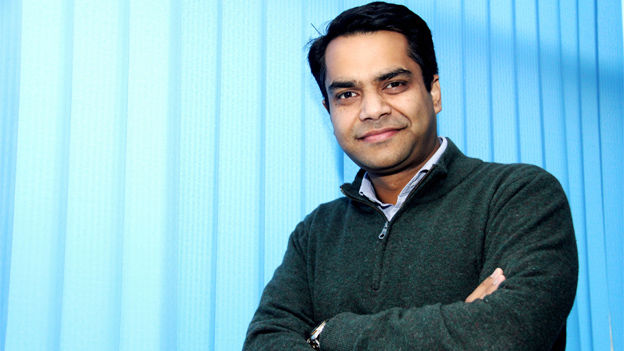Will is more important than skill

our founding blocks were built by the first bunch of people who came in and they stayed with us for a long time afterwards
I always knew that I would become an entrepreneur one day. When I returned to India in 2008 and looking at the mobile ecosystem, I realized that cellphones could have several uses which had yet to be explored. That’s when I started Voicetap (now Applied Mobile Labs) to provide mEducation over operators. We got some good talent that was available thanks to the recession. Our foundations were built by the first bunch of people who came in and they stayed with us for a long time.
When it comes to building a team, especially in a young organization, I have found that will is more important than skill. Someone with will can be taught the skill, but skill is wasted if there is no will to exercise it. We hire for will — either demonstrated or existing. It is even better if there is skill to complement it. However, we ensure that we build people. My message to my managers is always: “You won’t be given bigger shoes to fill until your team steps up to fill your shoes.” This helps everyone in the chain grow.
When hiring, I don’t look at resumes. I look at four key things:
- The skill vs will quadrant: If his skill and will are high, I go for him. If his will is high, but skill is low, I might consider him. If his skill is high but will is low, I place him on hold. If both are low,I reject him.
- Cultural fit: Will he fit in with the company and what we stand for?
- Stop-gap or long-term potential: Does this person want the job merely as a stepping stone to something else or is he genuinely interested in solving the same problem we are trying to tackle?
- Is he ‘engaged’ or giving a ‘job interview’: I have found that more inquisitive people think on their feet and are better than the ones who merely answer what I ask them.
Over these years, we made two mistakes that I should mention. One was focusing on things which we need not have at those points during our growth. When the company was two years old, we set up an elaborate review system with detailed requirements for each level — when we were not even 30 people strong. We spent a lot of effort and energy on things we did not really need. Another mistake was not firing people quickly enough. At the beginning, I used to give a lot of chances to people, even those who were clearly not fit to continue with us after the first three months. That was a mistake.
When it comes to AML, our growth mantra is simple: focus on people and their growth. If they grow, everything in the company grows along with them. A salesman becomes better: we get more sales. A tech guy becomes better: we have improved products. An admin and HR person becomes better: we have improved systems. We have a flat structure. I take my calls with my team, do my work with them, eat and party with the team. We have also added a unique form of communication and bonding. We have an open ‘crib session’. Everyone has to voice a crib openly about anyone or anything in the company, and it needs to be resolved then and there. That gives a huge sense of empowerment to the people. For today’s generation, it is a big thing if they can get their voices heard, acknowledged and, most important, acted upon. Beyond this, we have our regular open house sessions, buddy systems and so on.
Personally, it is imperative that I grow my people and that is something that keeps me awake at night. What gives me the most happiness is the fact that I have, so far, helped some 80-odd people grow and become leaders in whatever they do. Ten of them are entrepreneurs now, and all of them have performance standards above the industry average. I have sleepless night whenever I get the feeling that their learning has stopped.
(As told to People Matters)













